With water heating contributing to 27% of WA’s household energy use on average every year (only just behind heating and cooling for most people in Perth!), and being the largest contributor of greenhouse gases in your house, using the right hot water system can do wonders both for your wallet and your carbon footprint now and well into the future.
Join us as your local experts in hot water run through each different type of hot water system available on the market today. We’ll run through both sides of the story, and hopefully give you a better idea on which system is best for you and your family.
Instantaneous or storage?
The first decision you’ll want to make when looking when looking at hot water systems is deciding between a storage system (where the water is pre-heated and stored in a large tank for later use) or an instantaneous system (also called a continuous flow system, where the water is heated on it’s way to your tap when you need it).
Instantaneous (or continuous flow) water heaters
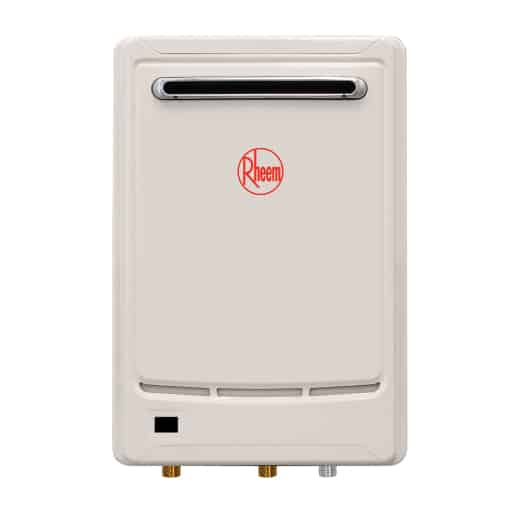
- Best for smaller households.
- Only heats water on-demand and when you need it.
- Cannot ‘run out’ of hot water like storage heaters can.
- Can take slightly longer to heat up when first used compared to storage systems.
- Can be negatively impacted by low-pressure water supply.
Instantaneous water heaters supply on-demand hot water by heating the pipes the water goes through to reach your outlets, rather than storing heated water in a tank. This option can be great for smaller households with fewer outlets and less overall water usage, where a larger storage-based heater would otherwise waste energy heating stored water that goes unused.
Storage water heaters
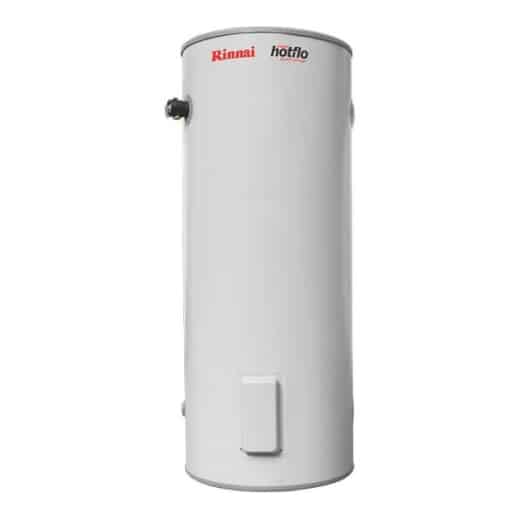
- Good for mid-to-large households.
- Not limited to gas and electric as instantaneous is.
- More efficient for heating large amounts of water compared to instantaneous.
- Heat losses from poorly-fitted tanks or pipes (and higher costs from continuous reheating) can add up over time.
- Tanks can corrode over time without professional maintenance and servicing.
Systems that store hot water for later use in large, insulated tanks are the tried-and-true method for many Perth families for their water heating needs. Keeping water heated in insulated tanks made from copper, enamel-lined steel or stainless-steel tanks, they can use all four fuel types to heat water depending on the model (electric, gas, heat pump or solar). These tanks can require more maintenance and servicing to prevent corrosion compared to instantaneous heaters but can last for a decade or longer when properly looked after.
Storage water heaters are best for larger households, where they can meet the demands of multiple users at once. They are also more efficient overall for heating larger amounts of water, where less heating time is wasted from lack of use.
Electric, gas, heat pump or solar hot water?
The energy source you choose for your hot water system can have a huge impact on both your wallet and your carbon footprint through long-term use. Whether you’re set on instantaneous hot water or a storage tank-based system, choosing the right fuel type for your hot water can be a daunting choice. Worry not, as we’ve got our expert tradies to go through both the pros and cons of each system. Make sure to stick around to the end for some insights on our favourite systems for your Perth household!
Heat pump hot water systems
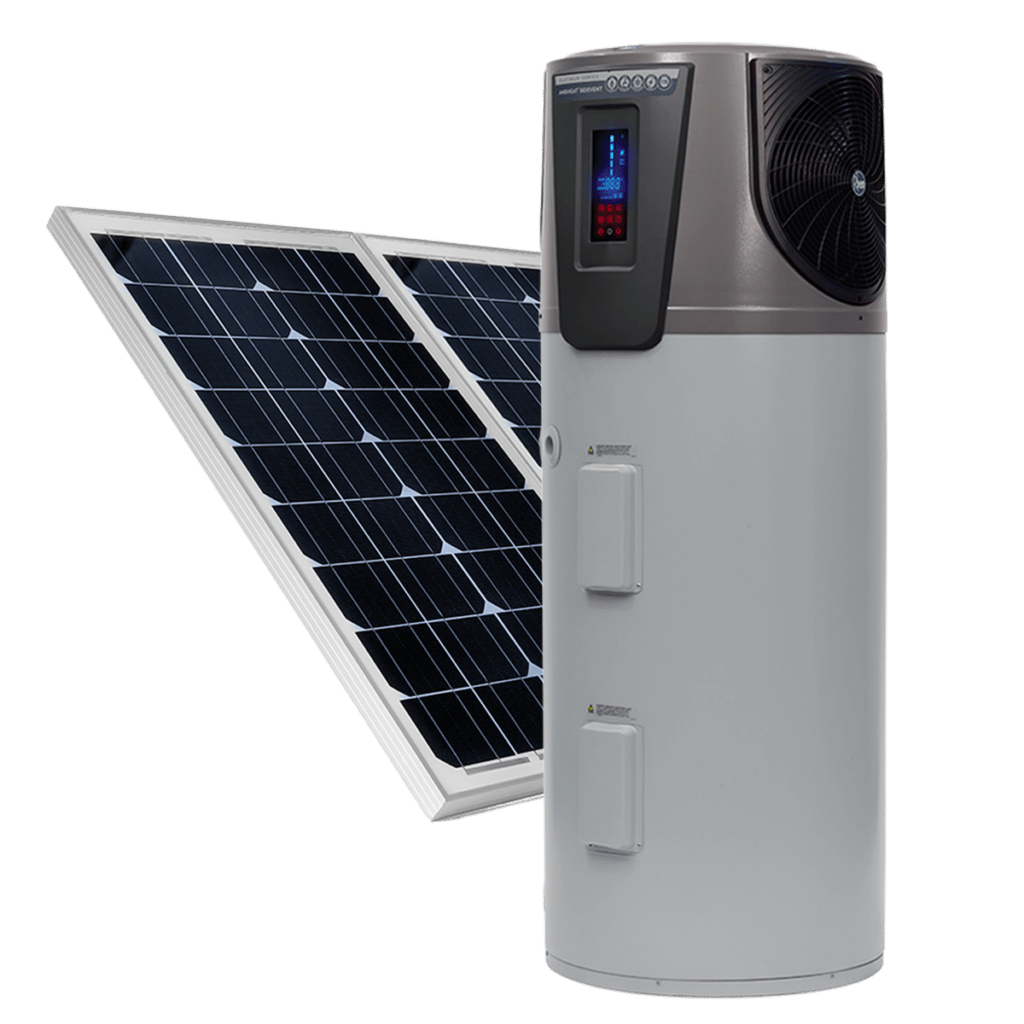
- Great for your wallet – most cost-effective option for most households.
- Good for the environment – uses very little energy compared to other systems.
- Can take advantage of or be packaged with PV solar electricity for even lower costs/emissions.
- Can often be a straight replacement for old electric or gas storage systems, reducing up-front installation costs.
- Air-source heat pumps can be eligible for the federal government’s renewable energy STC rebates.
- While most new models use natural refrigerants, a lot of older models use HFCs that are bad for the environment if not disposed of properly.
- No instantaneous options available.
Heat pump hot water systems are the new kid on the block, taking advantage of the energy all around us to heat water more than three times more efficiently than conventional electric hot water systems. Often likened to solar power without the sun, heat pump systems use the same refrigeration technology as other appliances but in reverse. Where fridges and reverse-cycle air conditioners use a refrigeration cycle to remove heat from a closed system, heat pumps grab the heat energy from the surrounding air to heat the water stored in their storage tank to a specified temperature.
While heat pump systems don’t work as well in colder temperatures approaching freezing, since Perth has plenty of heat to spare across all seasons, heat pumps are a great option for local families looking for a hot water storage systems. And with photovoltaic (PV) solar systems becoming more and more attractive for families looking to reduce their energy usage, heat pumps can be an ideal solution for your low-cost, low-emission water heating needs.
Looking to replace your old water heater and want to look into reducing your energy costs with heat pump and PV solar power packages? Our friendly team at Ritz P&E are experts in all things hot water, so give us a call and we’ll get you pointed on the right track no matter your needs!
Solar hot water systems
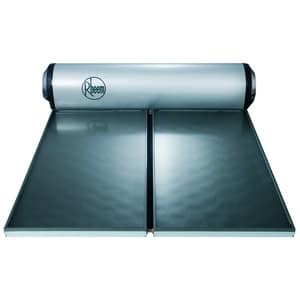
- Good for your wallet – can supply from 50 to 90% of your household’s hot water needs with solar alone, significantly reducing ongoing costs when in use.
- Great for the environment – uses the sun’s renewable energy to heat water, reducing your energy use substantially.
- Eligible for the federal government’s renewable energy STC rebates.
- Requires a gas or electric booster for heating water when solar heating is not sufficient.
- Can compete for rooftop space with PV solar electrical systems.
- High up-front costs for purchase and installation.
- No instantaneous option available.
Prominent on many rooftops across Perth, solar hot water systems have become popular as envronmentally-friendly hot water systems that can save money in the face of rising electricity costs. Using the sun’s thermal energy directly to heat water stored in storage tanks for later use, solar hot water can be a great long-term renewable water heating solution for your family.
While up-front costs are often higher than other alternatives, costs can be offset by the federal government’s renewable energy incentives. Keep in mind that solar hot water systems often use a conventional gas or electric hot water system as a booster when sunlight is not adequate for all your hot water needs (such as during the long winter nights we get this side of the equator), meaning their carbon footprint and cost isn’t zero – but they can still be 50% to 90% lower than other conventional methods.
Gas hot water systems

- Relatively cheap to buy and install.
- Great option for smaller households looking for instantaneous water heaters.
- Improved heating systems in newer instantaneous systems, such as Rinnai’s Infinity Enviro range, continue to improve overall efficiency and reduce energy costs compared to older models.
- Older models can be more expensive, with higher operating and installation costs than other options.
- Requires a gas mains connection or LPG gas bottle supply to run.
- Generally installed outdoors due to ventilation requirements.
- Higher heat loss as gas flame used for heating must be open to the air.
Gas hot water systems can heat water quickly for use in both instantaneous and storage water heating systems using natural gas or LPG as fuel. As the flame source needs to be well-ventilated, they are often found outside households and with slightly lower insulation than other systems. Because of this, they’re better suited for continuous hot water systems rather than storage-based systems, quickly heating the water only when it’s needed.
Electric hot water systems
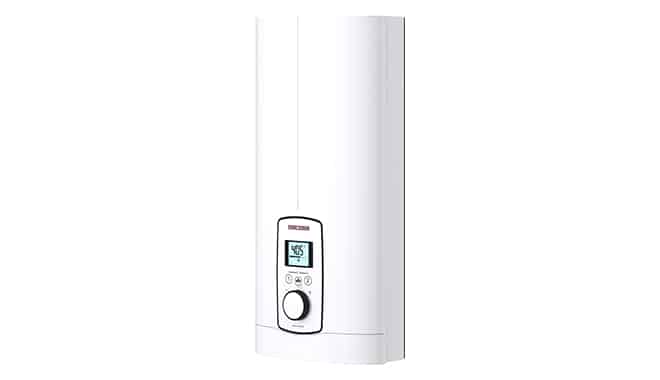
- Has options for both instantaneous and storage systems.
- Cheapest up-front costs to buy and install.
- Worst for your bank – most expensive to run.
- Worst for the environment – uses the most energy to heat the water sufficiently.
Electric hot water systems are some of the most popular systems across Perth, accounting for about 50% of all existing water heaters across Perth households. They use a system similar to your toaster to heat water, passing electricity through resistive wires to heat water either stored in tanks or for direct use in instantaneous systems.
While electric systems may have been a good choice in the past, these days they tend to be outshined by more modern alternatives such as heat pumps, which use less than a third of the energy compared to electric systems. They may still have their place for smaller households though, heating small amounts of water such as single outlets. However, we still tend to point to other options when replacing our customer’s systems.
Choosing your next hot water system: which one do we recommend?

With so much choice on the market, choosing a new hot water system can be hugely stressful – especially when faced with the prospect of no warm showers until you’ve replaced the one that’s just broken! Of course, there’s no one straight answer for which one will work best for every household – things such as household composition, size, location and more can affect the decision in many different ways.
Our favourite system overall tends to lean more towards heat pump systems for most larger households. “Heat pumps are game changers,” says Steve O’Brien, who made Ritz P&E what it is today after starting the company in his household garage back in 2018. “They’re cheap as chips to run, easy to install when replacing conventional hot water tanks, and work brilliantly alongside PV solar power. What’s not to love?”
Whether you’re in the market for a brand-new hot water system, have a water heater that doesn’t seem to be functioning at 100%, or just looking for advice on all things hot water in your household, the friendly team at Ritz Plumbing & Electrical are here to help. Chat to one of our friendly representatives now by calling 13 74 89 or send an enquiry using our easy online contact form.



